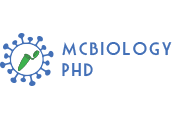March 12, 2021 at 14:30
Teams Seminar
“Gene therapy for familial ALS forms: challenges and perspectives.”
– – –
Dr. Maria Grazia Biferi, PhD
Center of Research in Myology
Sorbonne Université
INSERM U974 – Association Institut de Myologie
Paris, France
Over the past decade, a breakthrough for the treatment of neurological conditions was the demonstration that viral vectors, derived from Adeno-Associated Virus (AAV) can efficiently transduce cells in the central nervous system. Different applications for motor neuron (MN) disorders followed this discovery and an AAV-based therapy received marketing authorization for the treatment of pediatric patients affected by spinal muscular atrophy.
Amyotrophic Lateral Sclerosis (ALS) is another yet incurable MN disorder, characterized by degeneration of MNs leading to progressive paralysis and death usually within 3 to 5 years after diagnosis.
The majority of ALS cases are sporadic, without a family history. Gene therapy has emerged as a promising treatment option for some ALS cases with a familial history of genetic mutations (fALS), which represents 5%–10% of all forms. Some of the most common forms of fALS are caused by mutation in the Cu/Zn superoxide dismutase 1 (SOD1) gene or by hexanucleotide repeat expansion (HRE) in the first intron of chromosome 9 open reading frame 72 (C9orf72) gene. Mutations in the SOD1 gene result in a toxic gain of function mechanisms of the encoded enzyme that for unknown reasons acquires neurotoxic properties. The HRE in the C9orf72 first intron is responsible of C9orf72-ALS through a loss of function or a gain of function mechanism. Indeed, the HRE can inhibit C9orf72 transcription causing loss of function. The expansion can also be bi-directionally transcribed in sense or antisense transcripts that accumulate in RNA foci sequestering RNA binding proteins or can be translated through a repeat-associated non-AUG-dependent translation mechanism, producing toxic dipeptides.
For both SOD1- and C9orf72-ALS, gene therapy approaches entered in clinical trials. These approaches are based on the direct delivery of antisense (AS) oligonucleotides into the cerebrospinal fluid of affected patients, via repeated intrathecal injections.
We recently used an AAV serotype rh10 (AAV10) to deliver AS sequences to silence SOD1 expression in SOD1-mice. The AS were designed to induce the skipping of exon 2 of human SOD1 pre-mRNA in order to produce an mRNA with a premature stop codon activating RNA degradation. The AS sequences were delivered using a U7 small nuclear RNA and were injected through combined intravenous and intracerebroventricular administration of the AAV10 in SOD1 mice. This approach mediated survival increase in SOD1 mice injected either at birth or at 50 days of age (by 92% and 58%, respectively). The pre-clinical work to support the clinical translation of this gene therapy is ongoing. In parallel, we are testing a similar approach for C9orf72-ALS in vitro and in vivo. Specifically, we produced U7-AS constructs to reduce RNA foci, toxic dipeptide and to simultaneously preserve C9orf72 expression.
The AAV-U7-AS strategy combines the properties of AS oligonucleotides and AAV vectors and is a promising therapeutic option for fALS.
– – –
During her PhD at “La Sapienza” University in Rome, Dr. Biferi studied the mechanisms responsible for skeletal muscle stem cell quiescence and she acquired a strong technical and theoretical knowledge on the use of Adeno-Associated Viral vectors (AAV) to silence gene expression in experimental models. She then joined Dr. Barkats’ team at the Center of Research in Myology in Paris for a post-doctorate, to extensively exploit AAV properties in basic and translational research. Barkats’ group previously demonstrated the valuable therapeutic potential of self-complementary AAV serotype 9 vectors for gene transfer to the central nervous system (CNS) following systemic delivery. This achievement opened perspectives for the treatment of CNS disorders and motor neuron diseases (MND), such as Amyotrophic Lateral Sclerosis (ALS). During her post-doc, Dr. Biferi developed a new gene therapy strategy for SOD1-linked ALS and studied ALS pathophysiology generating novel experimental models. She also contributed to collaborative works for the development of gene therapy approaches for rare disorders, such as Spinal Muscular Atrophy (SMA). In 2017, the novel gene therapy approach for SOD1-ALS was awarded the “1M$ AVI Kremer ALS Treatment prize” by the Prize4Life association.
Dr. Biferi is currently responsible of the group BOND «Biotherapy for motor neuron disorders», at the Center of Research in Myology (Sorbonne Université – INSERM U974 – Association Institut de Myologie) in Paris (France).
Their research is devoted to the development of novel therapies for motor neuron disorders, with a particular focus on ALS and SMA. Their gene therapy for SOD1-linked ALS is currently under pre-clinical development and they are extending the therapeutic strategy to the most common genetic form of ALS (C9ORF72-ALS). They are working at the improvement of the AAV-mediated gene replacement for SMA, by addressing two main issues: the narrow therapeutic window for SMA rescue and the multisystemic nature of SMA. They are also generating novel experimental models of MNDs, using somatic brain transfer and patient-derived cells.
Team web page: Link
Personal Twitter account: Link
Personal LinkedIN account: Link


